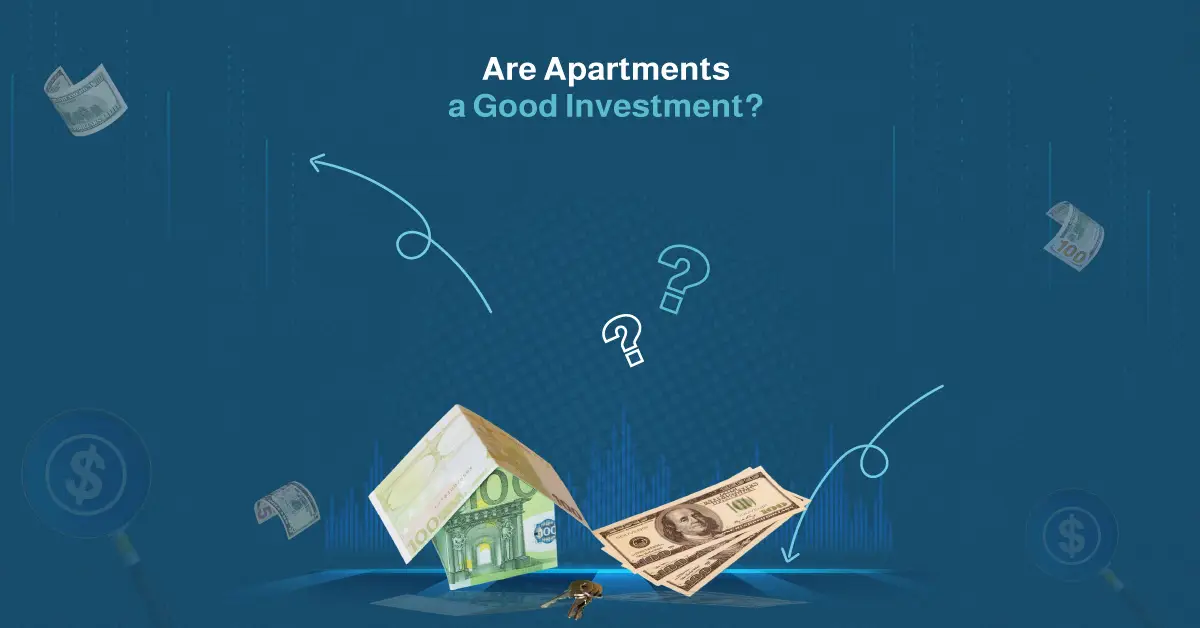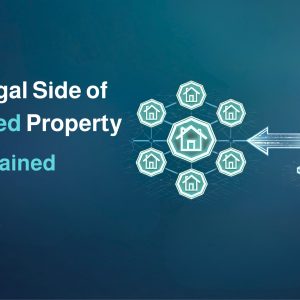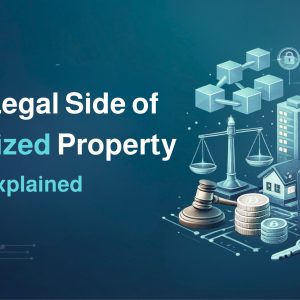If you’re thinking about property as a way to grow your wealth, apartments are often one of the first options that come to mind. They tend to be more affordable than villas or commercial spaces and can provide steady rental income. But a common question for both new and experienced investors is: are apartments a good investment today?
In Saudi Arabia and the surrounding region, apartments can offer regular cash flow from tenants and the potential for long-term price growth. They are attractive for beginners who want to enter real estate without taking on too much risk, as well as for seasoned investors looking to diversify their portfolios.
At the same time, owning an apartment isn’t without challenges. Maintenance costs, vacancies, and fluctuations in the market can affect returns. Not every property will perform the same way, so it’s important to understand both the benefits and the risks before committing your money.
In this blog, we’ll break down what makes apartment investments appealing, how they compare to other types of property, and the key factors to consider. We’ll also explain how platforms like Gamma Assets can give investors access to real estate-backed opportunities starting with smaller amounts, helping balance risk and return while building your investment portfolio.
More topics can be read on the Gamma blog
Why apartments can be a stable source of income
One of the main reasons investors consider apartments is the potential for a steady stream of income. Unlike some other property types, apartments often attract long-term tenants, making cash flow more predictable. This stability is especially appealing for those who want regular returns without taking on excessive risk.
Key benefits of apartment income:
- Rental cash flow: Apartments can generate monthly rent, which helps cover mortgage payments or provides direct income.
- High demand: In urban areas, apartments are often in demand due to affordability and location, meaning vacancies may be lower compared to larger homes.
- Flexible leasing options: Investors can choose short-term or long-term leases depending on market conditions and income goals.
- Portfolio diversification: Apartments allow you to balance other investments, such as stocks or commercial property, reducing overall risk.
A closer look at a typical scenario:
Suppose an investor buys a two-bedroom apartment in a growing city. Renting it out can cover mortgage payments while the property appreciates over time. Even with modest rental income, the combination of cash flow and long-term growth can make the apartment a reliable part of an investment portfolio.
While apartments are often more affordable than villas or commercial properties, they still offer opportunities for meaningful returns. They can be especially useful for beginners who want to enter real estate without a huge upfront investment.
Current market trends affecting apartment investments in 2025 to prepare for 2026
The performance of apartment investments depends heavily on market conditions. Understanding trends in pricing, demand, and rental yields can help investors make informed decisions about whether apartments are a good investment today.
Here’s a snapshot of key market trends impacting apartment investments in Saudi Arabia and the region in 2025:
| Trend | Impact on Apartment Investments |
| Urban population growth | Increased demand for affordable housing, leading to lower vacancy rates. |
| Rising construction costs | Can affect property prices and rental yields, making careful budgeting essential. |
| Interest rate fluctuations | Higher rates can increase mortgage costs but may also moderate property prices. |
| Popularity of mid-sized units | Two- and three-bedroom apartments are in high demand for families and young professionals. |
| Government housing initiatives | Programs to support homeownership can influence rental market dynamics. |
Investors should also consider the broader economic environment. Areas with growing job markets, infrastructure development, and improving amenities tend to attract more tenants and maintain stable property values.
By keeping an eye on these trends, you can identify apartments with strong rental potential and long-term growth, helping answer the question: are apartments a good investment for your portfolio?
Apartments vs other property types: condos, villas, and commercial real estate
When considering apartments as an investment, it helps to compare them with other property options. Each type has its advantages, challenges, and potential returns.
How apartments compare:
- Apartments
- Affordable entry point, especially in urban areas
- Steady rental income from long-term tenants
- Lower maintenance costs than villas
- Strong demand from young professionals and small families
- Villas
- Higher purchase price and maintenance costs
- Can generate larger rental income but may take longer to find tenants
- More suitable for premium markets and established investors
- Condos
- Often similar to apartments but may have shared facilities and higher service fees
- Can be attractive in areas with lifestyle amenities like gyms and pools
- Slightly higher management responsibilities
- Commercial real estate
- Potential for higher returns through office or retail rentals
- More exposure to economic cycles and vacancies
- Often requires larger capital and professional management
While apartments may not offer the highest returns compared to commercial real estate, their affordability, consistent demand, and manageable maintenance make them an attractive option, particularly for first-time or risk-conscious investors.
By weighing these factors, you can better decide if apartments fit your investment goals and portfolio strategy. This comparison helps answer the core question: are apartments a good investment for your personal situation.
Risks to consider: vacancies, maintenance, and market fluctuations
Even though apartments can offer steady returns, they come with challenges that investors should keep in mind. Being aware of them can help you make better decisions and manage your investment wisely.
Key risks for apartment investors:
- Vacancies
- If an apartment sits empty, rental income stops.
- Location, pricing, and demand determine how quickly it can be rented.
- Maintenance and repairs
- Regular upkeep and unexpected repairs can affect profits.
- Older buildings often need more attention, so factor in these costs.
- Market fluctuations
- Apartment values can rise or fall with economic conditions and supply-demand shifts.
- Overestimating future appreciation can lead to disappointment.
- Tenant issues
- Late payments, property damage, or disputes can disrupt income.
- Careful tenant screening and clear rental agreements help reduce problems.
- Regulatory changes
- New laws on rent, taxes, or housing rules can impact returns.
- Keeping informed about local regulations is important.
Investing in apartments isn’t risk-free, but with careful planning and smart choices, these challenges can be managed. Approaching them realistically helps you see how apartments might fit into your investment plan and whether they align with your financial goals.
How Gamma Assets makes apartment investing accessible even with modest funds
Investing in apartments doesn’t always mean buying an entire property. Gamma Assets allows investors to participate in real estate-backed projects with smaller amounts, giving access to the market without a huge upfront investment.
- Low entry point
You can start with a fraction of the capital required to buy a full apartment, making it easier for beginners or those testing the waters. - Professional management
Properties are managed by experts, so you don’t need to handle maintenance, tenant issues, or day-to-day operations. - Diversified opportunities
Gamma Assets pools investments across multiple apartment projects. This spreads risk and allows you to benefit from a mix of rental income and property appreciation.
If you’re considering apartments as part of a diversified portfolio, Gamma Assets provides real estate-backed opportunities starting from small amounts, helping balance risk and return. It’s a practical way to gain exposure to property while managing both cost and risk.
Making apartments work for your portfolio
Apartments can be a solid addition to a property investment strategy. They offer steady rental income, potential for long-term appreciation, and an affordable entry point compared with villas or commercial properties. At the same time, vacancies, maintenance costs, and market changes are real factors to consider before buying.
For many investors, balancing apartments with other types of investments helps reduce risk. Platforms like Gamma Assets make it possible to gain exposure to real estate without the need to purchase an entire property. This allows both new and experienced investors to benefit from property-backed opportunities, even with smaller amounts of capital.
Ultimately, deciding if apartments are a good investment comes down to your personal goals, budget, and comfort with property management. With careful planning and a clear strategy, apartments can provide predictable returns and help diversify your portfolio. They may not be risk-free, but for many investors, they strike the right balance between stability and growth.
You can start investing now from the Gamma Asset Investment Platform
FAQs
1- Are apartment investments halal in Saudi Arabia?
Yes, apartment investments are generally considered halal if they comply with Islamic finance principles. This means avoiding interest-based (riba) loans and ensuring the property is used for permissible (halal) purposes. Many investors choose to pay in full or use Sharia-compliant financing options that involve profit-sharing instead of interest. It’s a good idea to consult a financial advisor familiar with Islamic investing to structure your investment correctly.
2- What are the typical returns on apartment investments in the Gulf region?
Returns vary based on the city, location, and property type, but in major Gulf cities like Riyadh, Dubai, and Doha, rental yields often range between 5% and 8% annually. Capital appreciation can add to these returns over time, especially in high-demand urban areas. Still, investors should factor in costs like maintenance, property management, and potential vacancies to get a realistic view of net returns.
3- Can beginners start investing in apartments with small capital?
Buying a full apartment usually requires significant upfront capital, but beginners can still get exposure to the property market through real estate-backed platforms. These platforms allow fractional investments, meaning you can invest smaller amounts in larger projects. This is a practical way to learn about property investing without taking on the full financial and management responsibility of owning an entire apartment.













